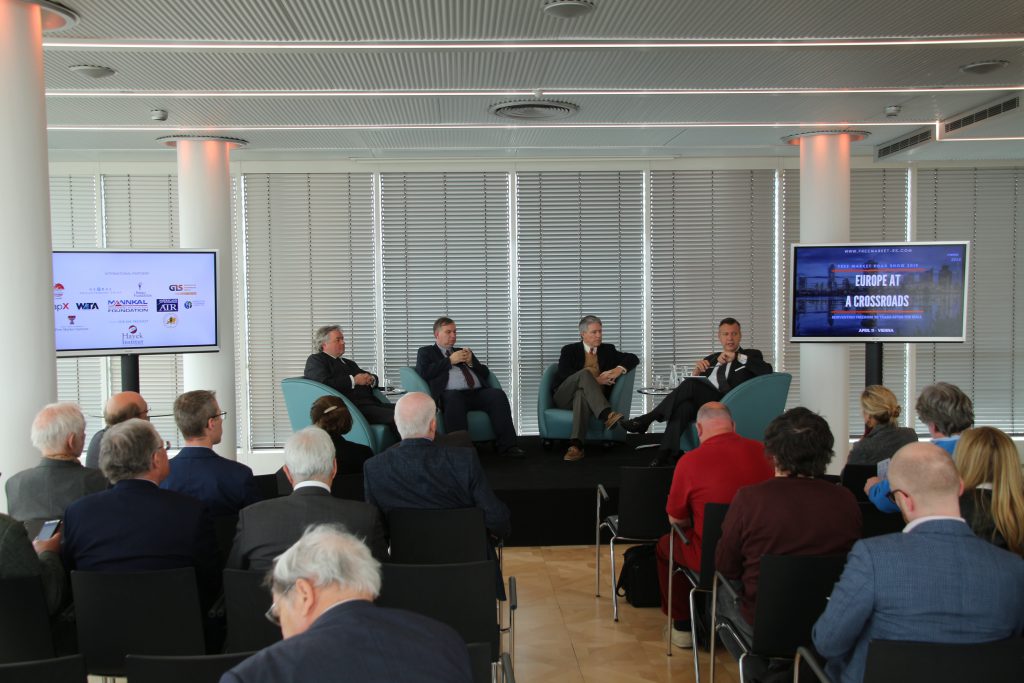
Report: Free Market Road Show in Vienna 2019
Mao Tse-Tung and the Basic Understanding of Liberalism
The 12th Vienna edition of the “Free Market Road Show” was held on April 11 at the Ringturm in Central Vienna, and featured outstanding discussions about liberalism, economic freedom, and Europe 30 years after the fall of the Berlin Wall.
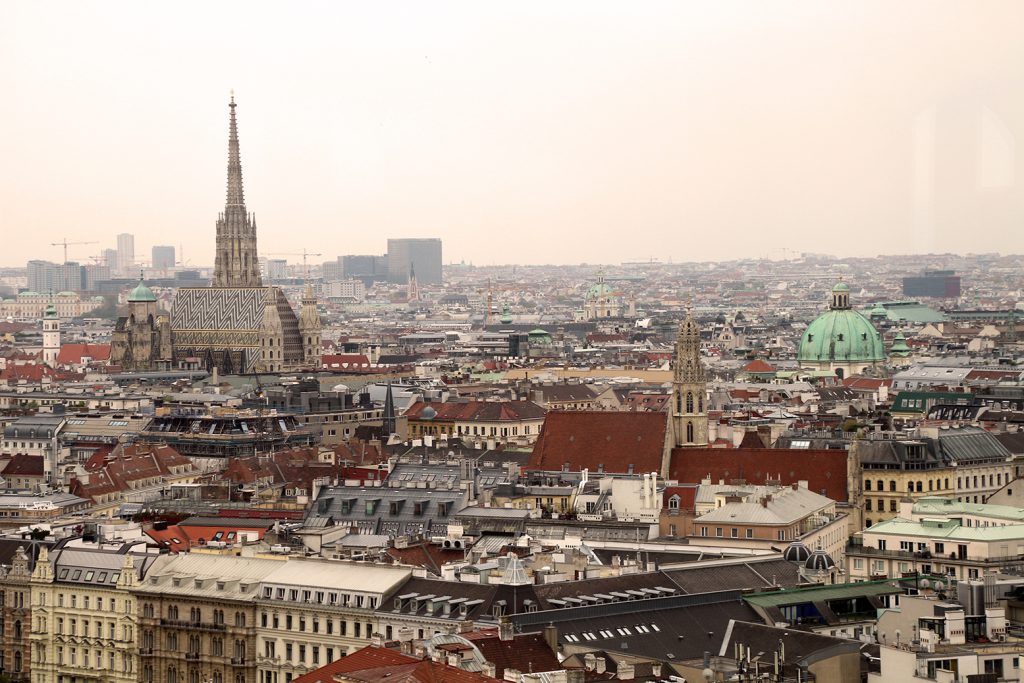
Hosting the event, Karl Fink, Chairman of the Vienna Insurance Group, opened the conference and welcomed attendees.
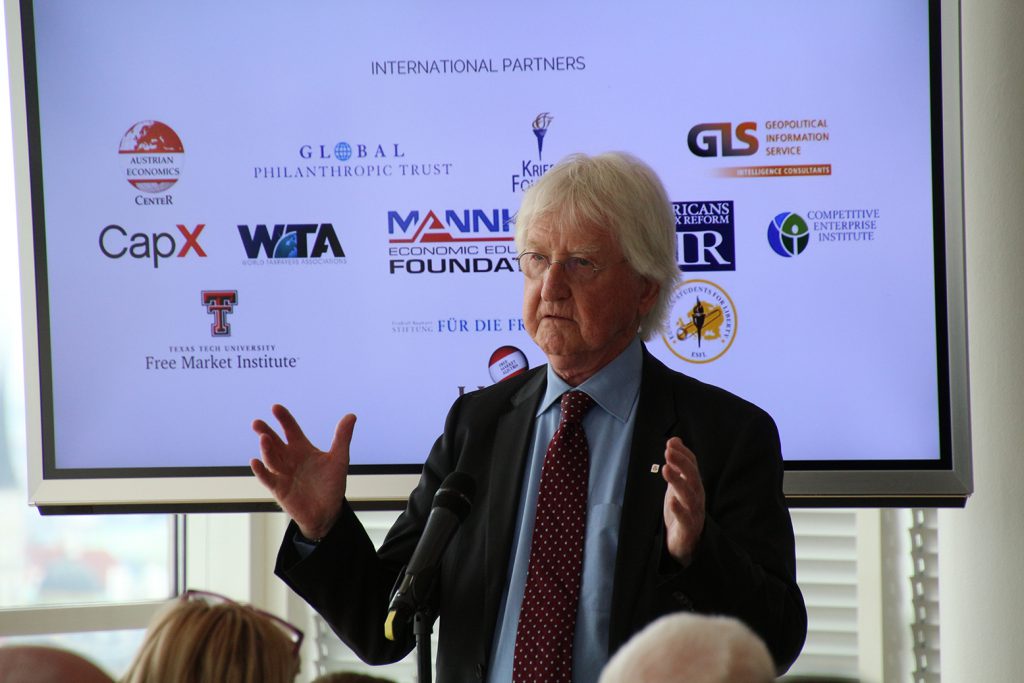
“It was Mao Tse-Tung, of all people, who convinced me that the three questions posed by three famous figures of economic history had been answered correctly”, the sociologist and political scientist Erich Weede then proclaimed. “He basically provided the experimental evidence for the accuracy of the assumptions of Smith, Mises, and Hayek” – But it caused the loss of millions of lives.
Professor Weede’s remarks regarding the “World View of Liberalism” marked the start to two highly engaging discussion rounds, both featuring excellent speakers and economic experts, local and foreign. The event in Vienna was held under the motto of “Europe at a Crossroads: Reinventing Freedom 30 Years after the Wall”. Chairing the first round was Dr.Barbara Kolm, Director of the Austrian Economic Center. She started off by remarking that “Economic freedom needs to be venerated and defended every single day”.
The Constitution of Liberty
Liberalism, according to Professor Weede, is fundamentally propagating a “Constitution of Liberty”, by which “constraint exerted by humans on other humans is minimized”. All true Liberals value Liberty as a pure concept, however, with liberty comes personal responsibility and as such, Prof. Weede says, “not everyone is really happy about being free”. Liberty is also closely connected to personal property (“Every man belongs to himself”): The fruits of your labor belong to yourself only, “not the tax collector – and we should remind our politicians of that fact from time to time”).
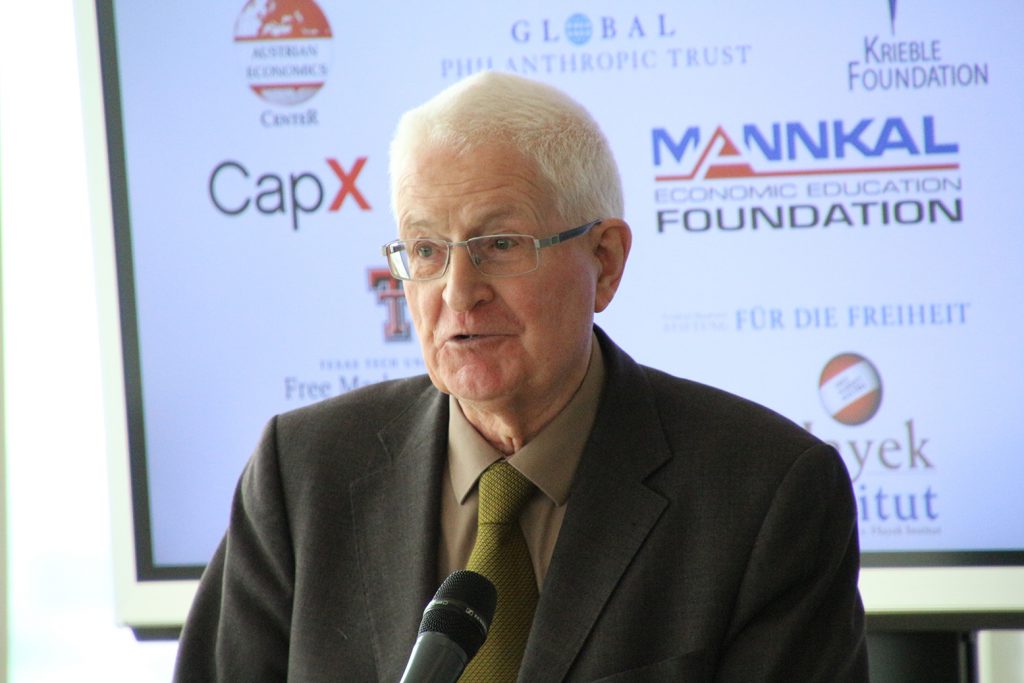
How could you convince sceptics of the value of Liberty and Liberalism? Prof. Weede proposes three basic understandings of economics that could be of help. First, Adam Smith believed that personal property is a vital incentive for wanting to join the workforce. Second, Ludwig von Mises postulated that possession of production capital is necessary for market competition and that scarcity prices are only possible by said competition. Finally, Friedrich von Hayek realized that there are different kinds of knowledge, (theoretical, practical, etc.). This knowledge is distributed among millions of people and therefore cannot be centralized. Accordingly, decentralized decision making, as well as an economy with private businesses and private possession of capital, are necessary factors for efficient usage of a societies’ shared knowledge.
According to Prof. Weede, Mao proved those three tenets with his “Great Leap Forward”, by “disregarding them in a way so thorough it was previously unknown to mankind”. Private property was completely abolished, work incentives radically expunged. There were no scarcity prices because there was no possession of production capital (neither farmland nor farm equipment), and knowledge shared by the farming community was substituted for “bureaucratic arrogance: the farmers could not decide when, where and what crops to plant, but instead were told what to do by the party”. The resulting famine killed 45 million people in just 4 years. If one denies basic economic insights and the result kills such a massive amount of people, then this is “convincing evidence for the validity of the insights”.
Today, Prof. Weede said, empirical evidence shows a connection between economic freedom prosperity, and growth. “The value of economic freedom is verifiable”. It is this exact freedom that also helps “those people that are still deprived of it by their own governments.” Many Asian countries for example restrict liberty, but profit from the freedom of western countries by “serving our affluent markets.”
Aside from economic freedom, “in today’s world, we primarily need to limit both the state and the power of governments, as this is the only way to overcome the inevitable mistakes of man. This is why we need a Constitution of Liberty”.
Liberalism is Guilt-Free
“Economic freedom is inevitably linked with political freedom”, Dr. Kolm stated in the discussion following Prof. Weede’s statements. The 30 years since the fall of the Berlin Wall are proof: “One only has to take a look at the current situation of the countries freed 30 years ago”.
Looking at the sprawling city center of Vienna spread out below the conference room, Herbert Unterköfler, head of management consulting company Korn Ferry remarked that “this is the structural result of liberalism in Vienna in the 19th century. It is unbelievable what forces the power of liberalism set in motion to achieve those results”. As opposed to other ideologies, liberalism remains “guilt-free”. However, it remains the ideology of only a minority in Austria, a fact explained by Mr. Unterköfler by stating that “liberalism is more rational, more logical and less emotional than other ideologies.” Fortunately, today one does not have to invent liberty, but to return to it.
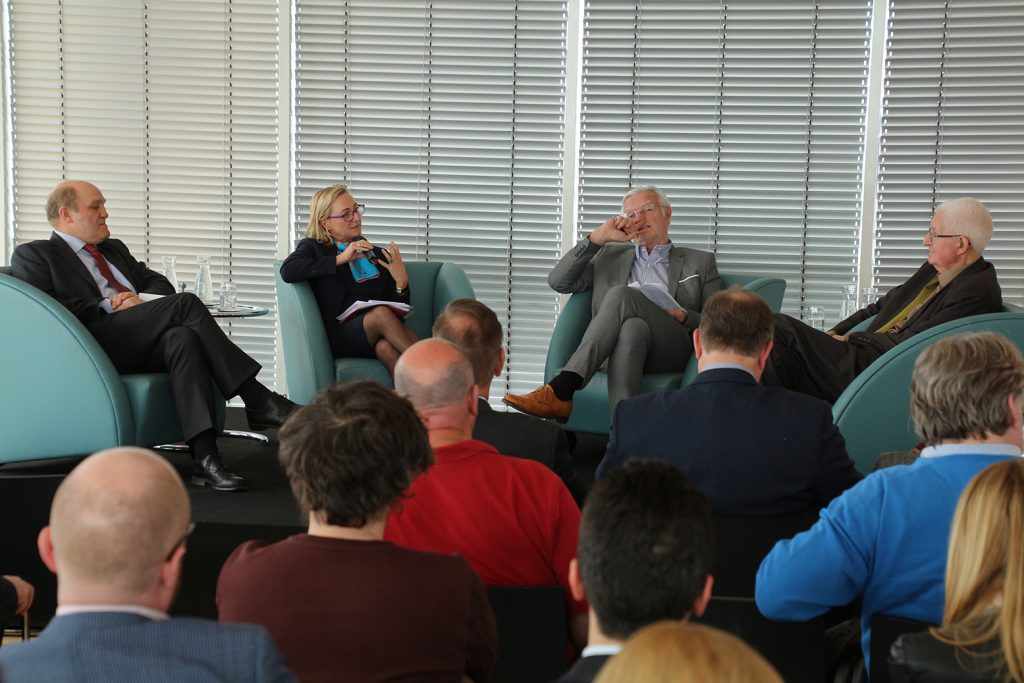
Entrepreneur Johannes Strohmayer, director of Austrian Equities AG then remarked that the liberal market economy had “led to prosperity and employment for most people”. Liberal and social market economies have enabled two billion people worldwide to ascend from deepest poverty in the last 15 years. In contrast, a centrally planned economy creates hunger and misery, “as seen currently in Venezuela”. Strohmayer sees the need for action in Europe too: “We must protect our citizens from overregulation”. He stressed the example of businesses that must have five general inspections per year, way too much, according to him. As such, deregulation should be one of the most important matters of a liberal society. “We have to imprint in our next generation the beauty of liberty”, Strohmayer said.
Self-reliance, competition and the achievement principle are not comfortable for all, but they describe the essence of freedom and liberalism”, added Dr. Kolm at the end. Thinking about being responsible for one’s own choices “is also something we have to make the younger generation familiar with”.
Europe at a crossroads: Demographic deficits, high expenses and too much harmonisation.
The US-Journalist John Fund explained why Europe is at a crossroads and why there are so many differences between the European people and their governments. He explained the historical perspective on the development of the EU since 1989, after the downfall of communism: “There was great euphoria and people wanted to develop the EU to a political Union”. With the expansions, the Maastricht Treaty all the way to the efforts towards a European Constitution,” the voters were never asked or involved, there was a clear deficit of democracy”. Whenever people got the chance to vote on the future of Europe directly “they voted against their own government”. It would be time to follow the will of the people.
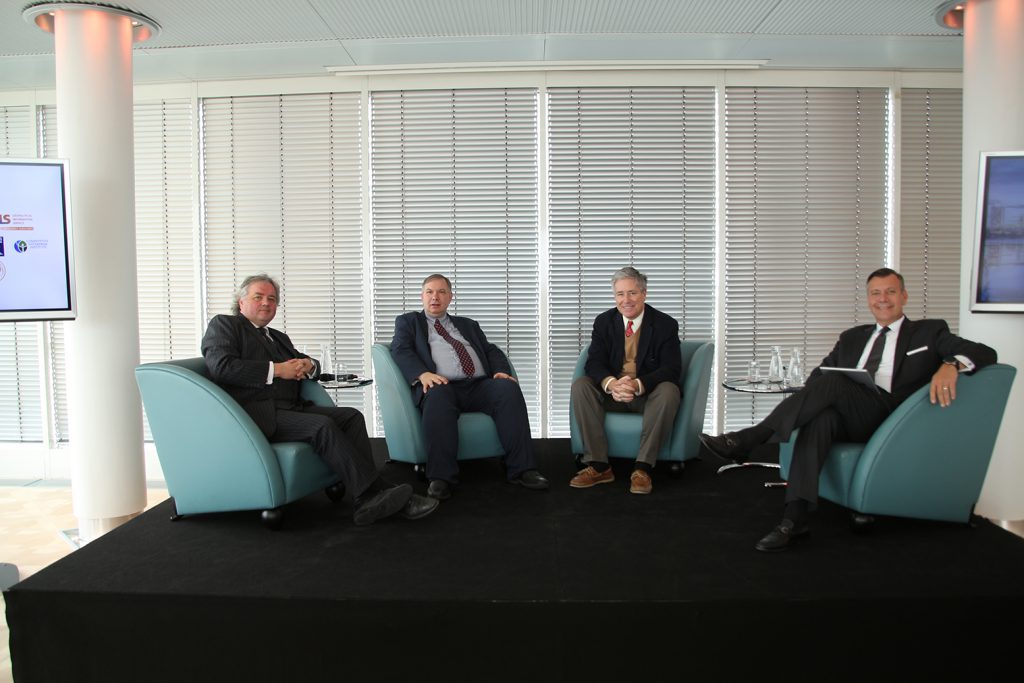
According to US economist Terry Anker (The Anchor Consulting Group), Europe must also consider the question of whether and how the Western traditions of private property and individual freedom will prevail over those of oriental heritage (Asia) with more collective ownership. In China, India and Africa, each with a population of over one billion, as well as in Russia (“is it Europe or Asia?”), there would be partially conflicting definitions of markets. Anker considers it possible that a new “Monroe Doctrine” could arise through that.
Daniel Mitchell, an economist at the US Center for Freedom and Prosperity, states: In all rankings, EU countries are repeatedly within top rankings, which is a merit of the Union. But there would be problems with the different national political decisions. Since the shock of the financial crises, the state expenses would have even gone up a lot more. If there would be a new crisis Italy could face the same fate as Greece: “This is not due to Brussels, but the Italian policy over the last decades”. Other problems threatening EU countries are the aging population and tax policies. “I’m afraid Brussels tries to control everything, harmonized and centralized – that’s a mistake”.
British tax expert Richard Teather of Bournemouth University sees this as a threat to Europe: On one hand, there are the respective rules of a country, on the other hand, there are, at the same time, the same rules for all. With increasing centralization and harmonization (such as with taxation) “we are losing the variety of opportunities to try something, to test new systems, and thus lose flexibility”. That applies not only to tax systems but to many other areas. For example, Austria is doing much better in creating new jobs than other countries. Europe is at a crossroads here: “Will we totally harmonize everything or accept diversity?”
